Back in 2010, I found myself explaining why the Italian chocolate-hazelnut spread Nutella1 is better than its Norwegian imitationcompetitor Nugatti to my colleagues at the University of Bergen. Yes, like most Italians, I often brag about Italian food.
One of my colleagues challenged me: “I bet what you want that if I give you a slice of bread with Nutella and another one with Nugatti, you will not recognise the difference.”
I answered: “I bet what you want that I will recognise the difference between Nutella and three other spreads, while blindfolded.”
A few weeks later, I ran the first chocolate-hazelnut spread test at the University of Bergen. The test aimed at verifying if it is possible to recognise chocolate-hazelnut spreads while blindfolded.
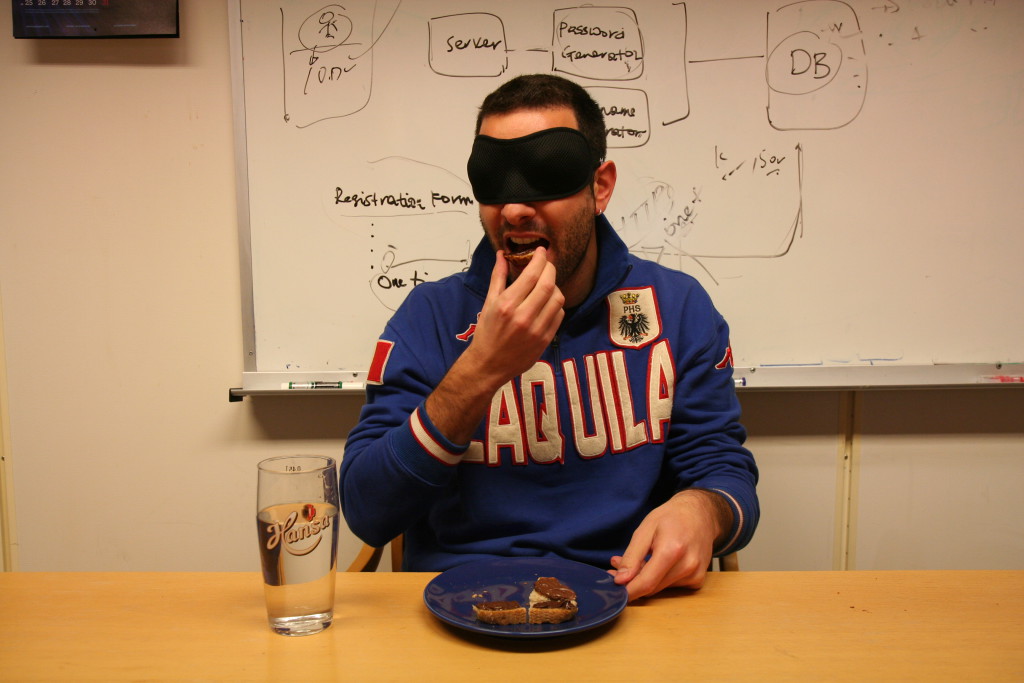
Here is the structure of the test:
- 3 participants
- 4 chocolate-hazelnut spreads, known to the participants
- Each participant tasted each spread in random order, while not blindfolded
- Each participant tasted each spread again in random order, while blindfolded
- After the second taste, each participant matched the spreads in the first taste with the spreads in the second taste (e.g., the third spread in the first taste was the first spread in the second taste)
And here are the results:
The participants correctly matched the spreads 10 times out of 12 (i.e., 83,33% of the times).
Galvanised by the results, I grew a passion for chocolate-hazelnut spreads. Before the test, I thought that the chocolate-hazelnut spread was Nutella and that everything else on the market was just an imitation. After the test, I tasted more than 20 different chocolate-hazelnut spreads and completely reconsidered my opinion on Nutella and everything else on the market.
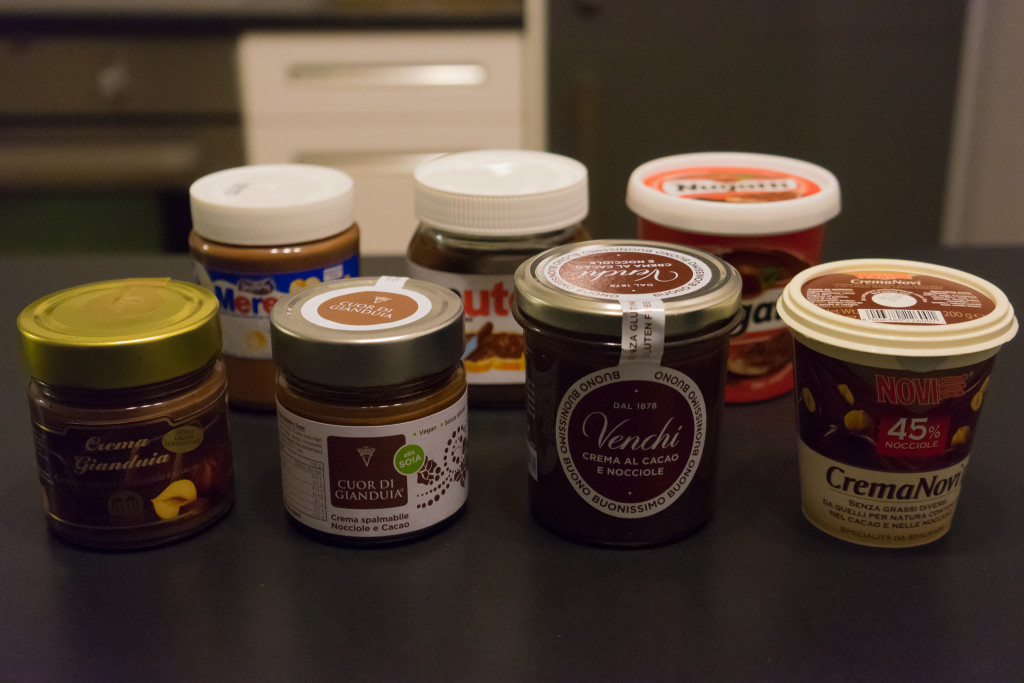
My enthusiasm for chocolate-hazelnut spreads quickly became known to my friends and colleagues. Last year (i.e., five years after the first chocolate-hazelnut spread test), I was introduced to a new researcher at the University of Oslo, who told me: “Wait a minute; you must be the Nutella guy!” I was not sure if to be proud or depressed by the fact that my input to the field of chocolate-hazelnut spreads got more attention than my contribution in the field of software engineering 🙂 Nevertheless, I decided it was time to replicate the chocolate-hazelnut spread test, turning it into a full-blown experiment.
Eventually, two weeks ago, I ran the chocolate-hazelnut experiment at SINTEF. The experiment aimed at ranking the best and worst tasting chocolate-hazelnut spreads, in addition to verifying if it is possible to recognise chocolate-hazelnut spreads while blindfolded. I know, this is not the kind of experiment you would expect from a researcher in software engineering… But it is serious research nevertheless 🙂
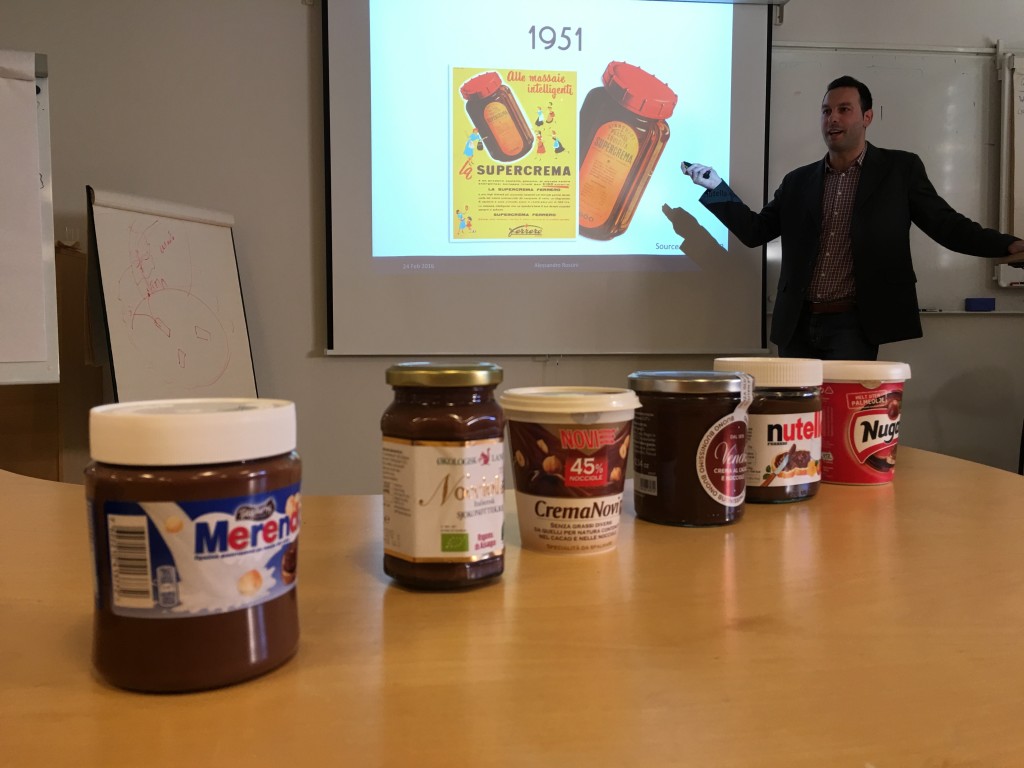
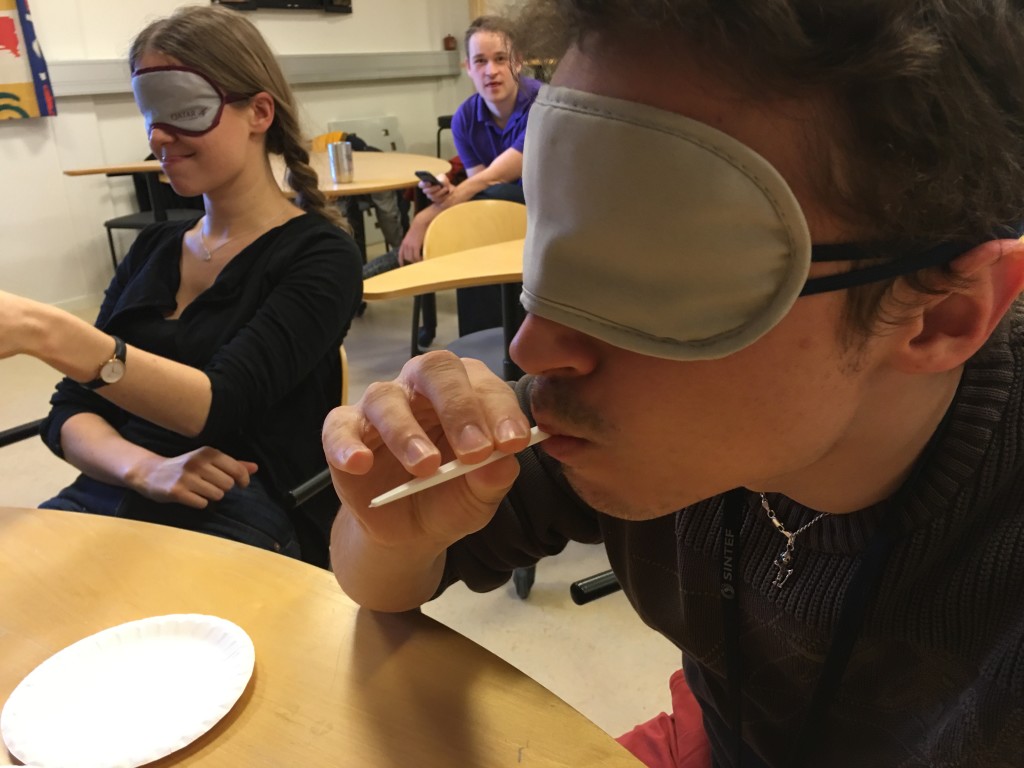
Here is the structure of the experiment:
- 12 participants (9 males, 3 females) from 7 countries (4 from Norway, 3 from Italy, 1 from Bulgaria, 1 from France, 1 from Russia, 1 from Sri Lanka, 1 from Ukraine)
- 4 chocolate-hazelnut spreads (Merenda from Greece, Nugatti from Norway, Nutella from Italy, Venchi Crema Suprema XV from Italy), known to me only
- Each participant tasted each spread in random order, while not blindfolded
- After the first taste, each participant chose the best and worst tasting spreads
- Each participant tasted each spread again in random order, while blindfolded
- After the second taste, each participant matched the spreads in the first taste with the spreads in the second taste (e.g., the third spread in the first taste was the first spread in the second taste)
And here are the results:
7 participants ranked Venchi, 3 participants ranked Merenda, and 2 participants ranked Nutella as the best tasting spread. No participants ranked Nugatti as the best tasting spread.
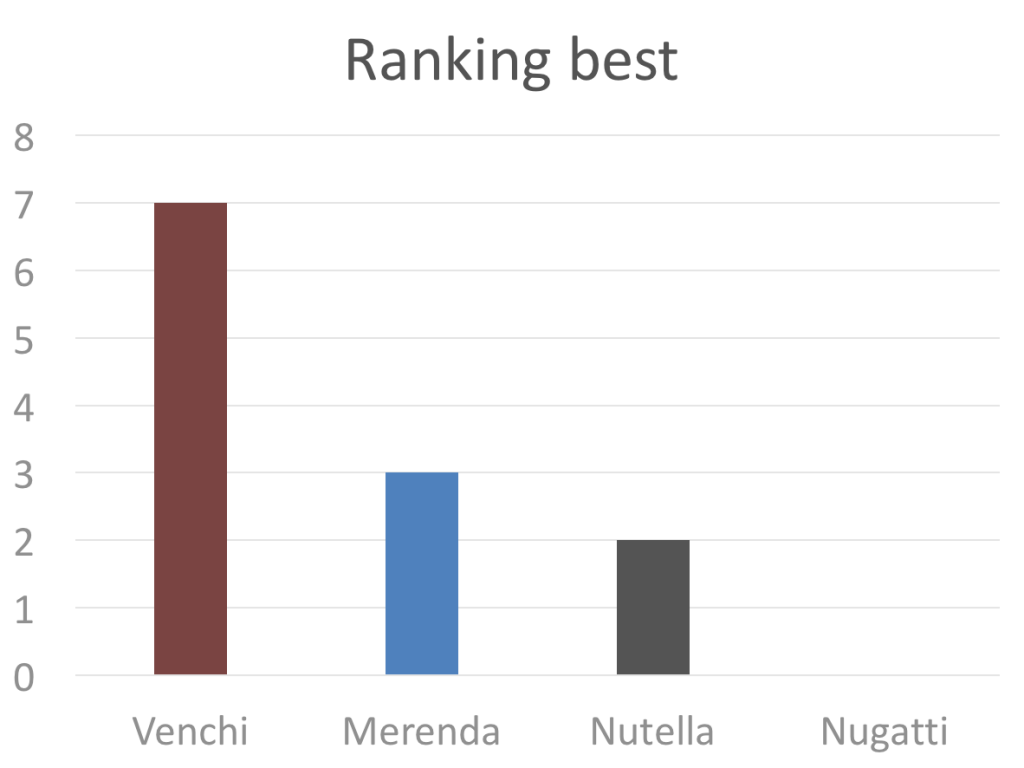
8 participants ranked Nugatti, 3 participants ranked Merenda, and 1 participant ranked Venchi as the worst tasting spread. No participants ranked Nutella as the worst tasting spread.
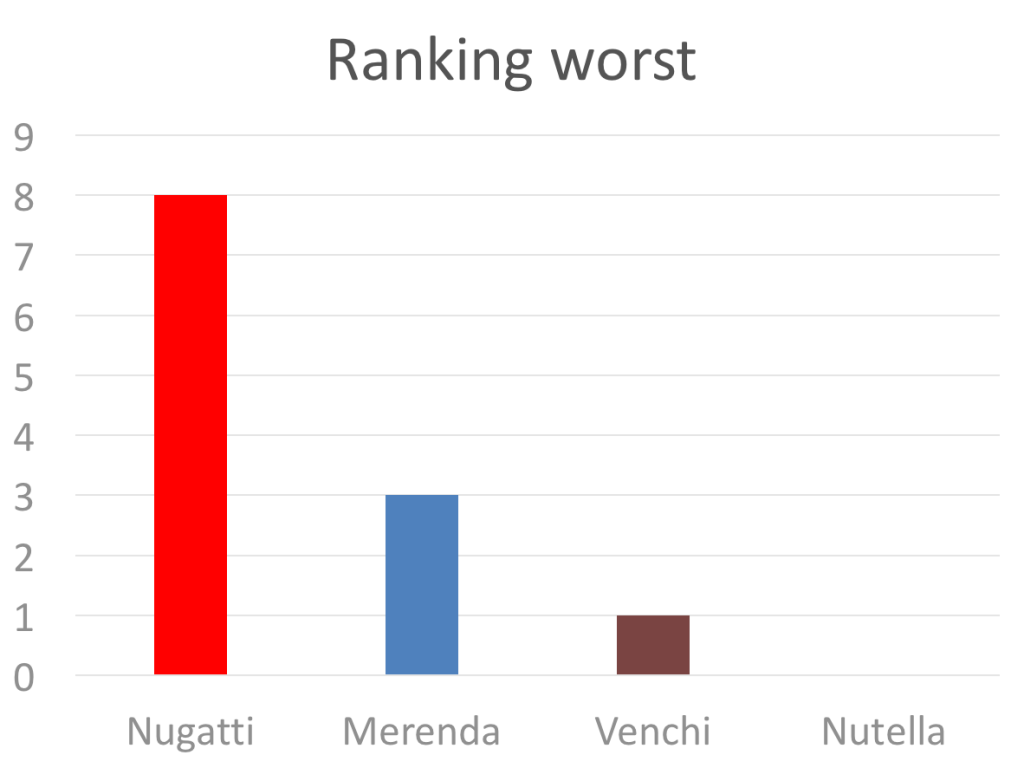
The participants correctly matched the spreads 33 times out of 48 (i.e., 68,75% of the times).
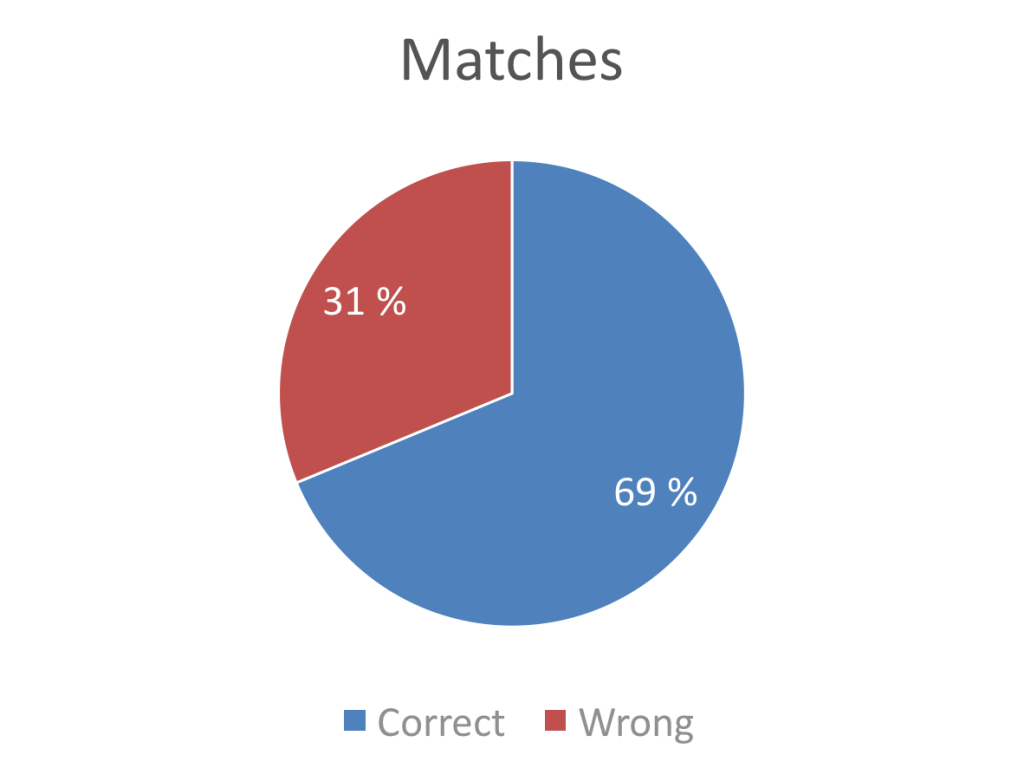
6 participants correctly matched all spreads, 3 participants correctly matched only 2 spreads, 3 participants correctly matched only 1 spread.
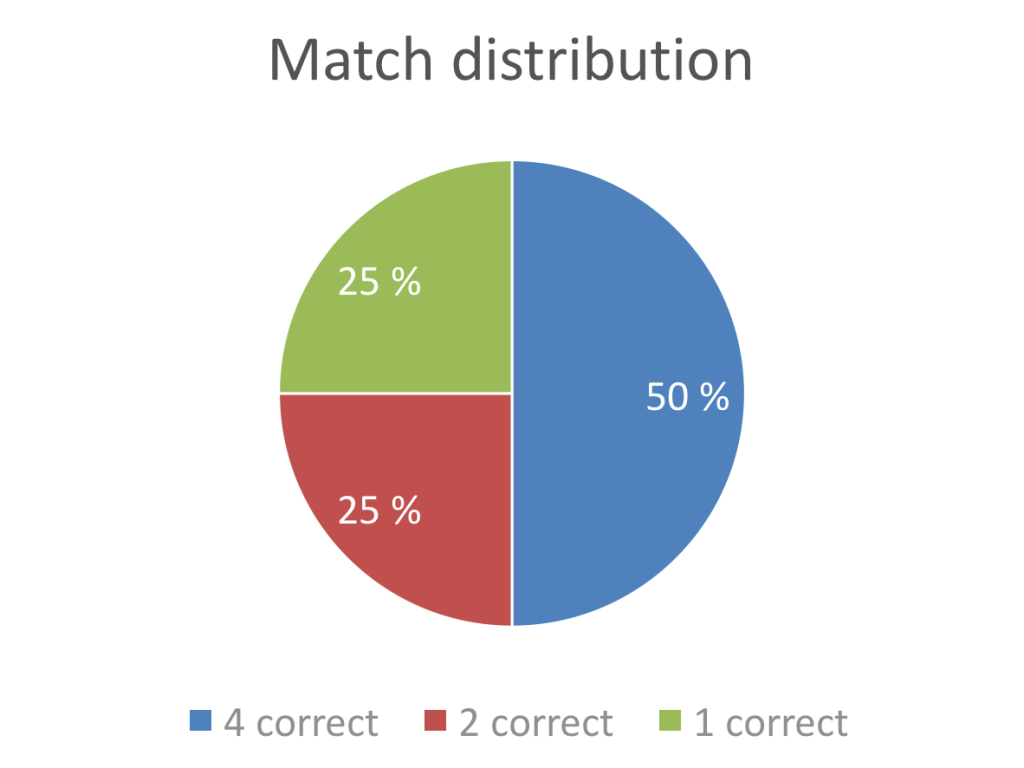
3 women out of 3 correctly matched all spreads.
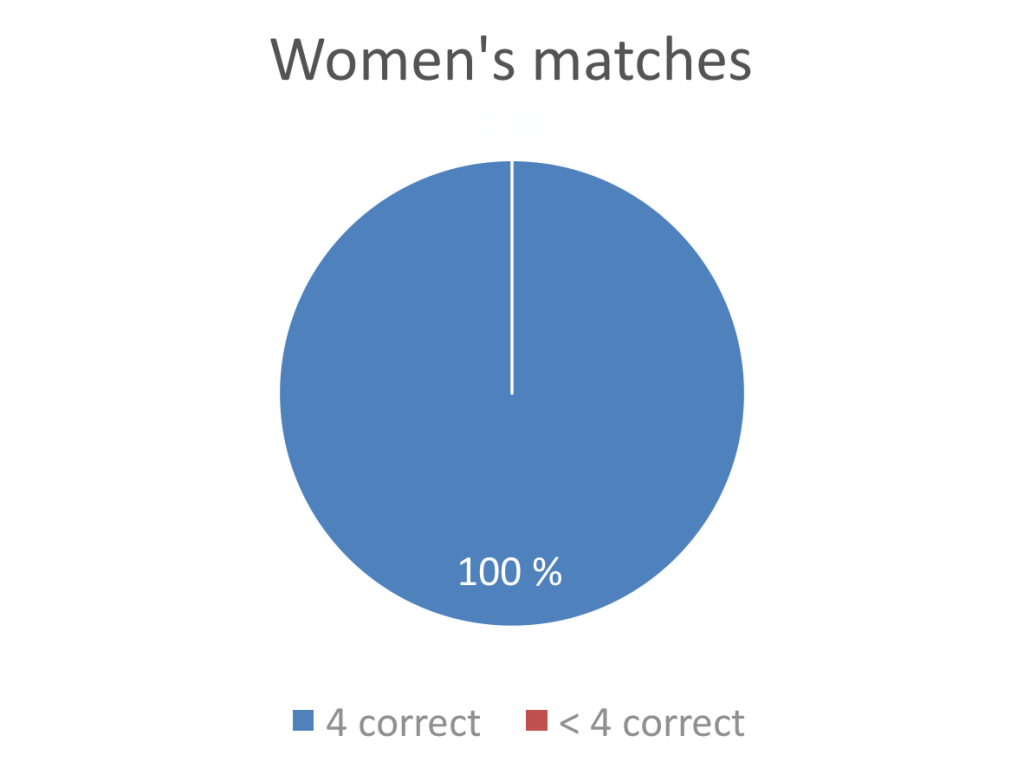
3 men out of 9 correctly matched all spreads.
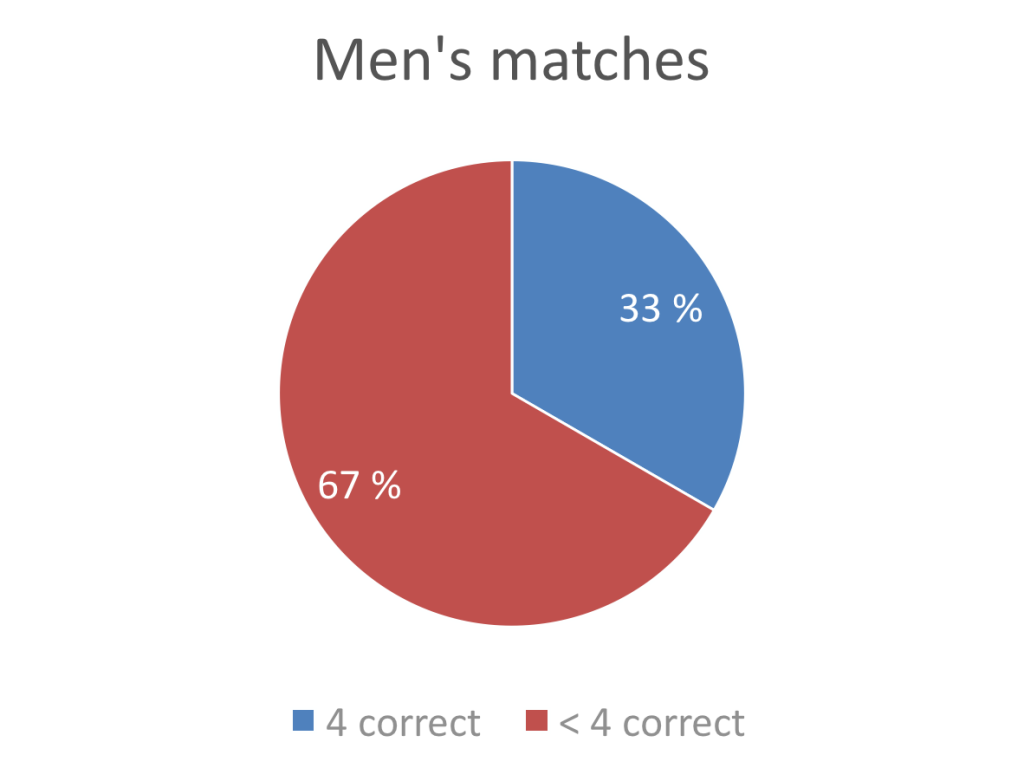
To summarise, the participants ranked Venchi as the best and Nugatti as the worst tasting spread; they correctly matched the spreads more than two-thirds of the times; women were better than men at correctly matching the spreads.
Can we conclude that my colleague at the University of Bergen lost his bet? Can we also generalise the result, and propose a generic framework for blind tasting foods and beverages? Comments and questions are more than welcome 🙂
Special thanks to my friends and colleagues who participated in the experiment.
Update 20 June 2018
Yesterday, I had the pleasure of replicating the experiment at EVRY.
Here is the structure of the experiment:
- 9 participants (6 males, 3 females) from 5 countries (5 from Norway, 1 from Ireland, 1 from Italy, 1 from the Netherlands, and 1 from Sweden)
- 4 chocolate-hazelnut spreads (First Price Nøttepålegg from Norway, Nugatti from Norway, Nutella from Italy, Venchi Crema Suprema Fondente2 from Italy), known to me only
- Each participant tasted each spread in random order, while not blindfolded
- After the first taste, each participant chose the best and worst tasting spreads
- Each participant tasted each spread again in random order, while blindfolded
- After the second taste, each participant matched the spreads in the first taste with the spreads in the second taste (e.g., the third spread in the first taste was the first spread in the second taste)
And here are the results:
3 participants ranked Nutella, 2 participants ranked Nugatti, 2 participants ranked Nøttepålegg, and 2 participants ranked Venchi Crema Suprema Fondente as the best tasting spread.
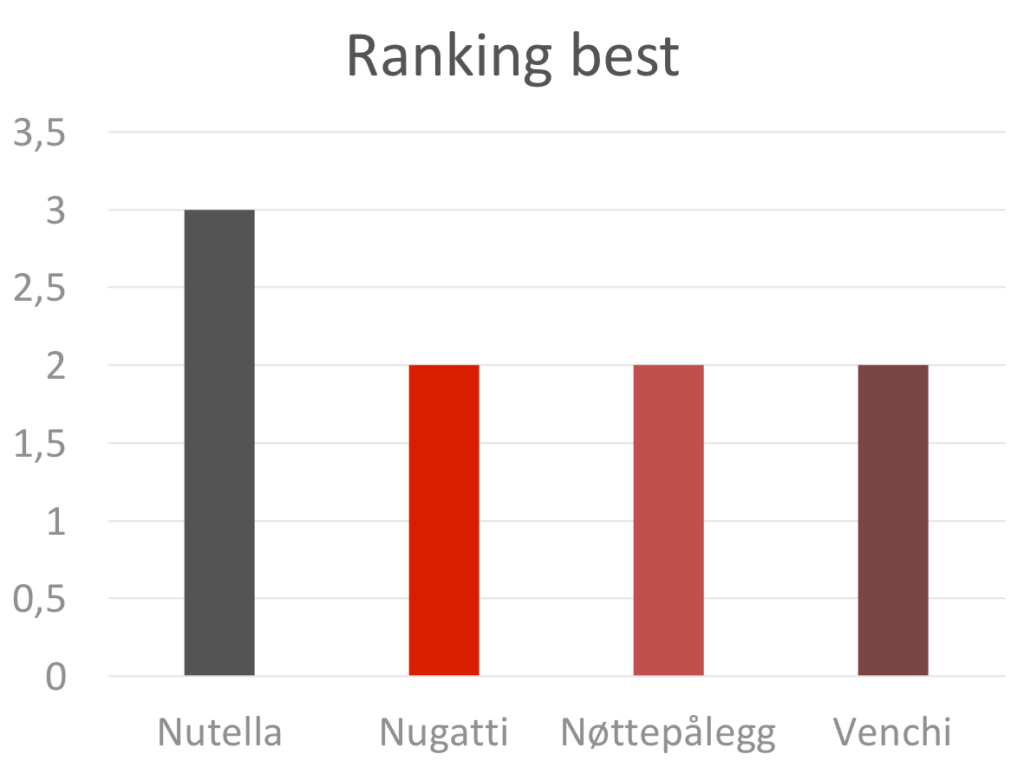
5 participants ranked Nøttepålegg, 2 participants ranked Nugatti, and 2 participants ranked Venchi Crema Suprema Fondente as the worst tasting spread. No participants ranked Nutella as the worst tasting spread.
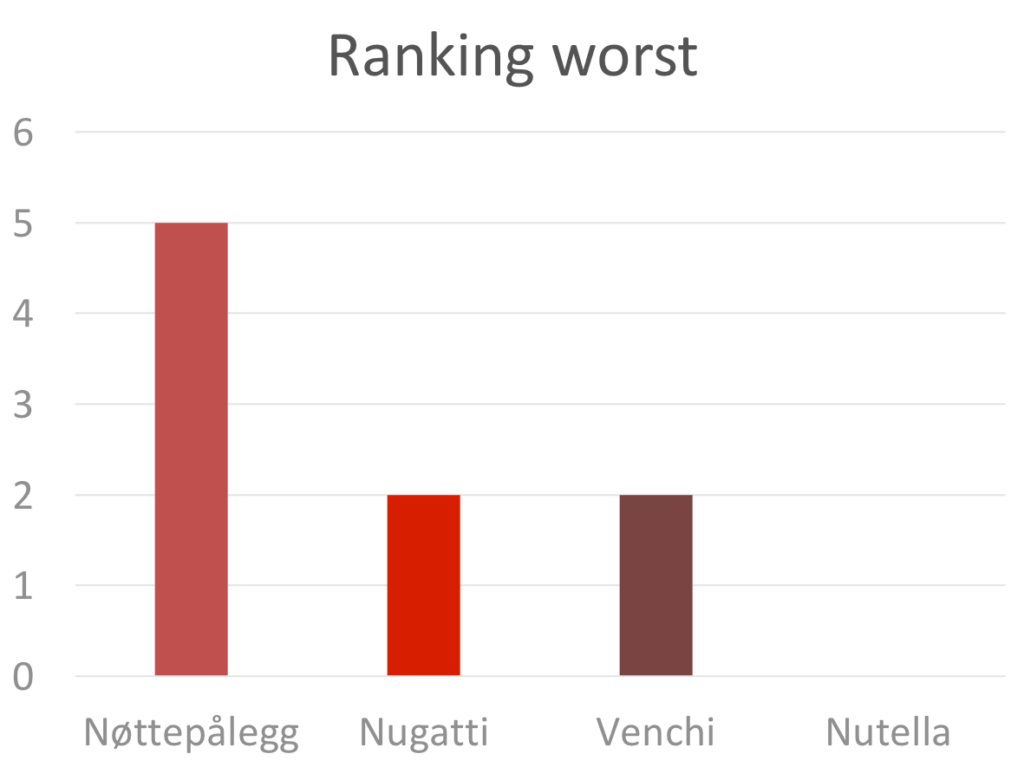
The participants correctly matched the spreads 17 times out of 36 (i.e., 47% of the times).
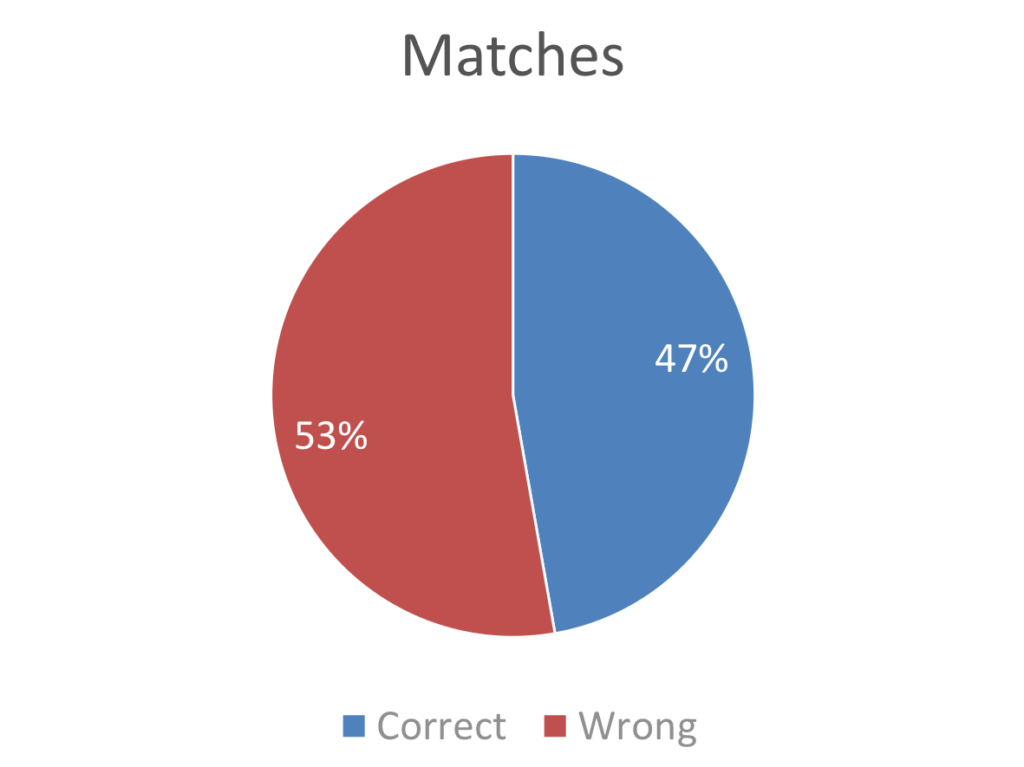
2 participants correctly matched all spreads, 3 participants correctly matched only 2 spreads, 3 participants correctly matched only 1 spread, 1 participant did not correctly match any spreads.
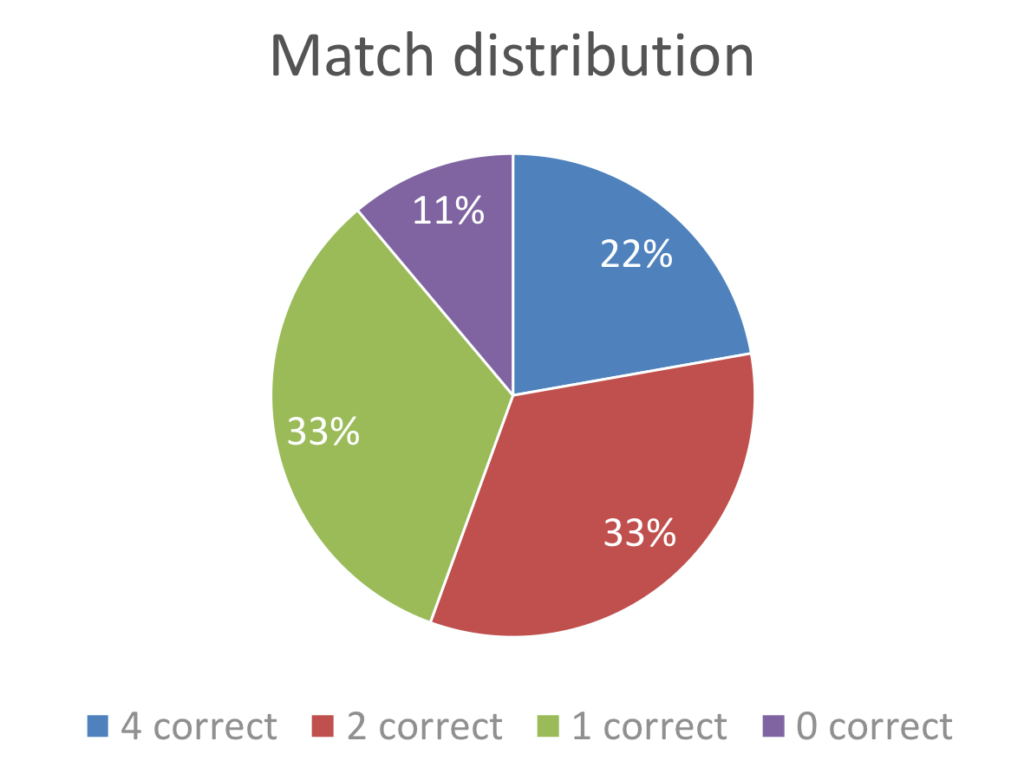
0 women out of 3 correctly matched all spreads.
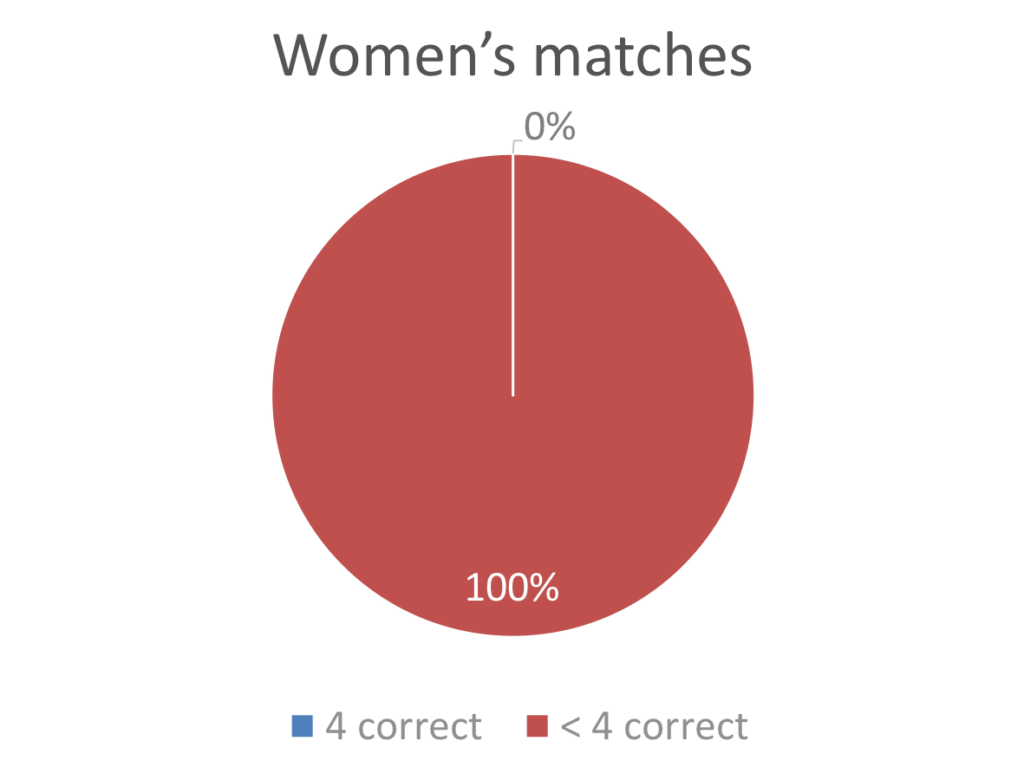
2 men out of 6 correctly matched all spreads.
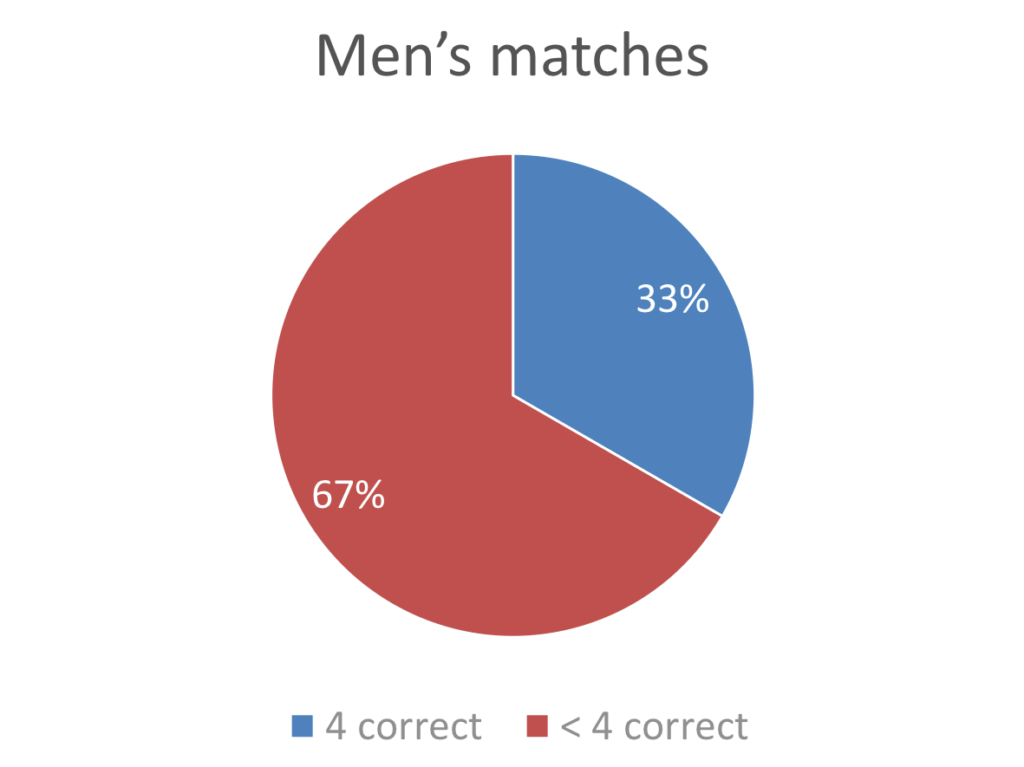
To summarise, the participants ranked Nutella as the best (although it was not a clear winner) and Nøttepålegg as the worst tasting spread; they correctly matched the spreads less than half of the times (contra more than two-thirds in the 2016 experiment); men were better than women at correctly matching the spreads (contra the opposite in the 2016 experiment).
To be honest, these results are disappointing. First, although dark chocolate may not be everyone’s taste, I expected the Venchi Crema Suprema Fondente to be ranked as best. Second, I expected the participants to match the spreads correctly at least two-thirds of the times. Finally, since it is scientifically proven that women have a better sense of smell than men, I expected women to be better than men at matching the spreads correctly. But… Data is data, and these results encourage me to replicate the experiments once again in the future.
Special thanks to my friends and colleagues who participated in the experiment.